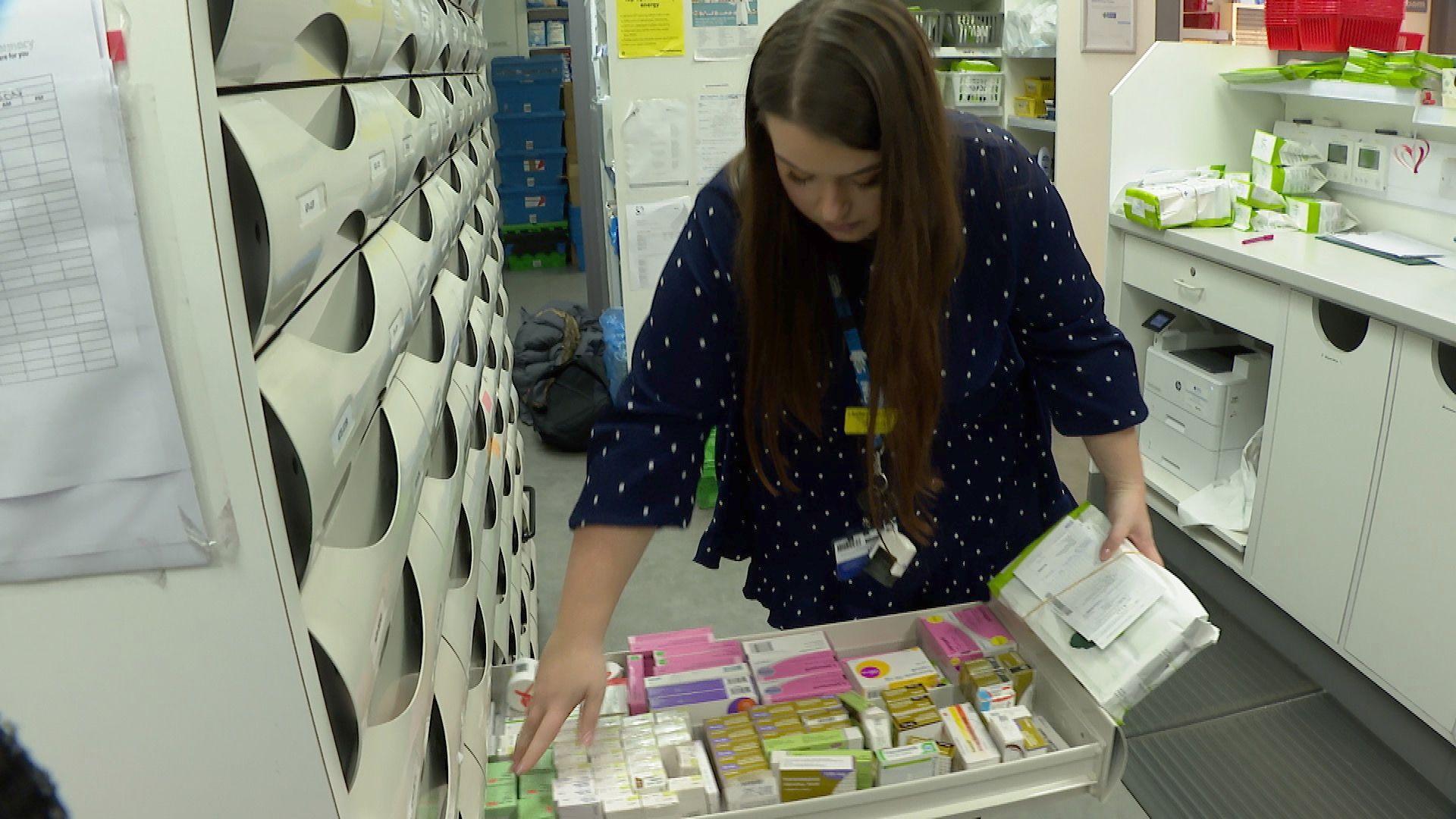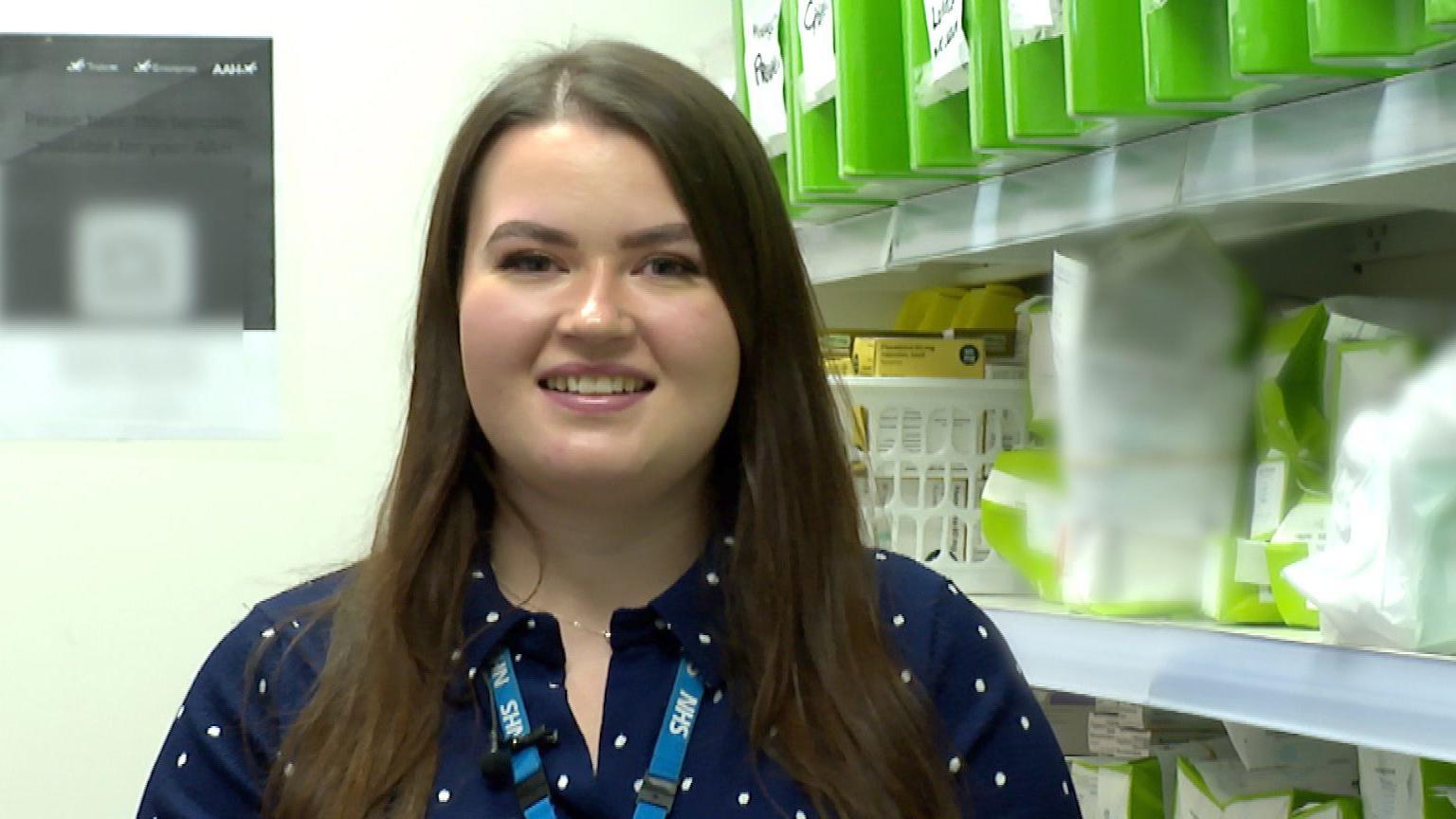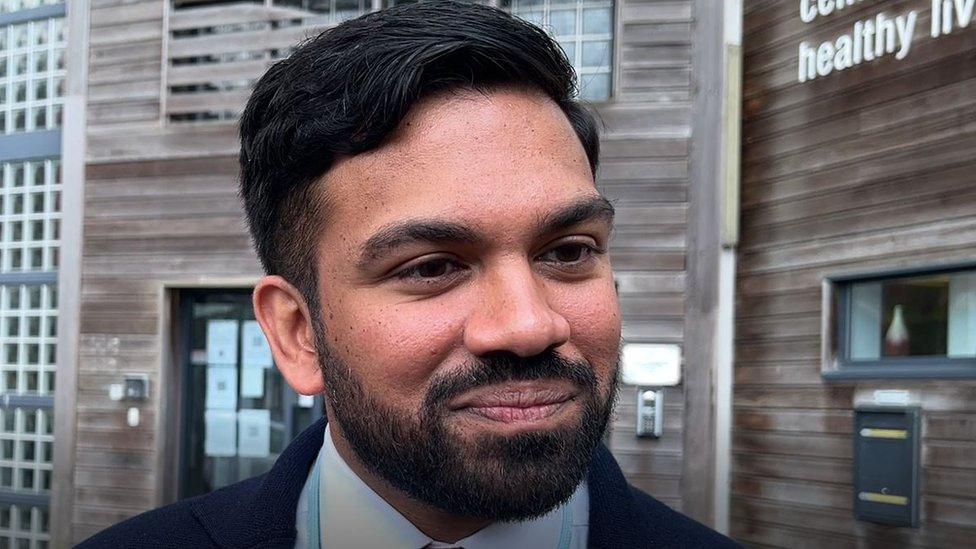Universities team up to tackle lack of pharmacists

The South West has the highest community pharmacy vacancy rate in England
- Published
Two universities are joining forces to try to tackle the urgent need for more pharmacists, particularly in the south-west of England.
The University of Bath is working with the University of Plymouth to deliver its well-established MPharm course at both institutions.
Pharmacists are on the government's national shortage occupations list, especially in the South West, which has the highest community pharmacy vacancy rate in England.
With no pharmacy degree courses west of Bath, course leaders said they hoped students studying in Plymouth would then fill local vacancies when they graduated.
Bespoke teaching facilities
Lyn Hanning, director of Practice-based Learning in the School of Pharmacy at the University of Bath, said the plan, supported by NHS England, "gives us that opportunity to produce more graduates".
She added: “The other thing it does is gives us an opportunity to have brand new bespoke pharmacy practice teaching facilities that are then available within the south-west.”
Prof John Curnow, the University of Plymouth’s deputy vice chancellor, said the partnership would see pharmacy students learn "in practice-based and clinical teaching spaces, with consultation rooms and simulation equipment".

Pharmacist Rhiannon Hardie said there were opportunities in her home county of Cornwall
Rhiannon Hardie is a recently qualified pharmacist who studied at Bath and returned to Cornwall, where she grew up.
She said she believed the new scheme would offer an opportunity which was not available when she was training and it would attract others from the county to the career.
“There are loads of opportunities down here," she said.
"I can definitely spread my wings and, now that I have qualified, there are lots of different things that I could do down here that I liked the idea of.
"Cornwall as a whole can be quite a deprived area ... [but students] wouldn’t have to go away and spend all this money to stay at university if it is right on their doorstep.”
The course would be delivered in close collaboration with NHS England and local stakeholders, bosses said.
Changes to pharmacy education will allow pharmacists to prescribe medication on registration from 2026.
- Published8 May 2023

- Published27 June 2023

- Published9 May 2023
